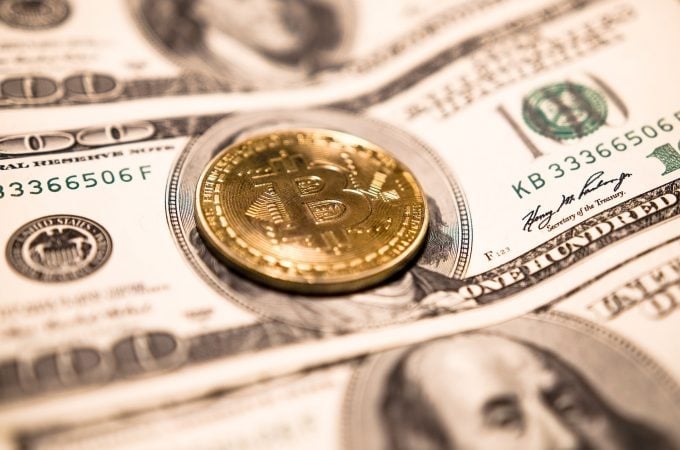In April 2025, Donald Trump, an inescapable figure on the American political scene, made headlines by launching his own stablecoin. With a $2 billion foreign investment, this initiative reignited the debate on cryptocurrency regulation, political ethics, and the risks of conflicts of interest.
The world of cryptocurrencies is never short of twists and turns. But rarely has an initiative so shaken the political, financial, and legal spheres as Donald Trump’s did in 2025. The current President of the United States, Donald Trump, entered the world of decentralized finance through his company, World Liberty Financial. By launching a stablecoin pegged to the US dollar, on the Ethereum blockchain, and receiving $2 billion in funding from a foreign investor, the businessman placed crypto at the heart of the American political debate.
This affair, dubbed TrumpCoin by the media, reveals the growing tensions between technological innovation, political ethics, and financial regulation. It may well redefine the regulatory landscape for digital assets in the United States.
The TrumpCoin Project: Between Patriotism and Alternative Finance
The World Liberty Financial (WLFI) crypto project, backed by the Trump family, plans to distribute its USD1 stablecoin for free to current WLFI token holders as part of a test before an official launch. This stablecoin was deployed on Ethereum and the BNB Smart Chain, although it is not yet active on a large scale. With over $550 million raised, the project sparks debate due to the direct involvement of the Trump family, particularly concerning the centralization of governance, which contrasts with the principles of decentralized finance.
Trump’s stablecoin project, though technically standard, is distinguished by its political branding. Promoted as a “patriotic” alternative to the digital dollar contemplated by the Federal Reserve, the World Liberty Financial stablecoin targets a conservative base suspicious of traditional financial institutions. In his speeches, Trump presents his initiative as a response to the growing centralization of the banking system and government control over currency. He relies on a populist rhetoric to legitimize his project: “I am giving finance back to the American people.”
But behind this ideological facade lie far more complex issues.
A Controversial $2 Billion Foreign Funding
The trigger for the controversy is a massive investment: $2 billion from a foreign entity linked to a sovereign wealth fund. This is MGX, a sovereign fund from the United Arab Emirates. This funding immediately raised suspicions in Congress, particularly regarding the risks of conflicts of interest, economic policy manipulation, and even foreign interference.
While the United States struggles to agree on federal cryptocurrency regulation, the arrival of a private stablecoin promoted by a sitting president, funded by a foreign entity, added fuel to the fire.
Political Reactions: From Enthusiastic Support to Outrage
The more populist wing of the Republican Party largely supports the initiative, seeing it as an extension of the fight against “financial tyranny” and a tool for individual monetary sovereignty.
But the reaction from the Democratic side was immediate and fierce. Several leading figures, including Representative Maxine Waters and Senator Elizabeth Warren, denounced a major conflict of interest and called for strict legislation.
Thus was born the proposed bill, the End Crypto Corruption Act, which aims to prohibit any elected or former elected official (including presidents) from owning, promoting, or profiting from digital assets during and after their term.
The GENIUS Act Under Threat: When Trump Blocks the Regulation He Claims to Promote
The Trump scandal occurred just as Congress was preparing to vote on the GENIUS Act (Guidelines for Establishing National Innovation in the Use of Stablecoins), a text intended to regulate the development of stablecoins in the United States.
This bill, long negotiated on a bipartisan basis, is now in jeopardy. Several Democratic elected officials have withdrawn their support, fearing that the law could be used by the American president and others to legitimize dubious practices. Some even accuse Donald Trump of launching his stablecoin precisely to derail this legislative process.
National Security Risks
Beyond the economic aspects, the TrumpCoin affair raises concerns related to national security. If a dollar-pegged stablecoin is massively adopted and controlled by a political actor, funded by a foreign entity, it could become a factor of monetary instability and geopolitical influence.
The Treasury Department and the SEC (Securities and Exchange Commission) have launched a preliminary investigation, while the NSA and CIA are evaluating potential links to strategic foreign interests.
Crypto Industry Reactions
The crypto ecosystem is divided. Some see it as a validation of crypto as a tool for campaigns and economic influence, opening new avenues for political funding. Others, more concerned with the neutrality of blockchain technology, denounce a dangerous political appropriation.
Players like Coinbase or Circle remain cautious, while Bitcoin maximalists mock the initiative, calling it an “authoritarian shitcoin.”
Long-Term Implications
The TrumpCoin affair marks a turning point for crypto in the United States. It reveals the need for a clear and federal regulatory framework. But also the danger of potential political conflicts of interest in financial innovations. According to several analysts, this affair could precipitate the adoption of radical laws regulating the involvement of elected officials in the digital financial sector, similar to the anti-stock ownership laws for members of Congress.
Crypto, Power, Ethics
The TrumpCoin affair embodies one of the biggest collisions between political power and financial innovation in recent US history. By mixing stablecoins, presidential influence, foreign investments, and populist ambitions, Donald Trump has propelled the issue of cryptocurrencies to the heart of sovereignty, regulation, and public ethics challenges. While this initiative galvanized a part of the conservative electorate, it also triggered a wave of legislative and security reactions, revealing the flaws in the current regulatory framework. Whether viewed as an audacious technological advance or a masked authoritarian drift, TrumpCoin suggests a future where the blockchain could become a major lever for economic, political, and even geopolitical power.










